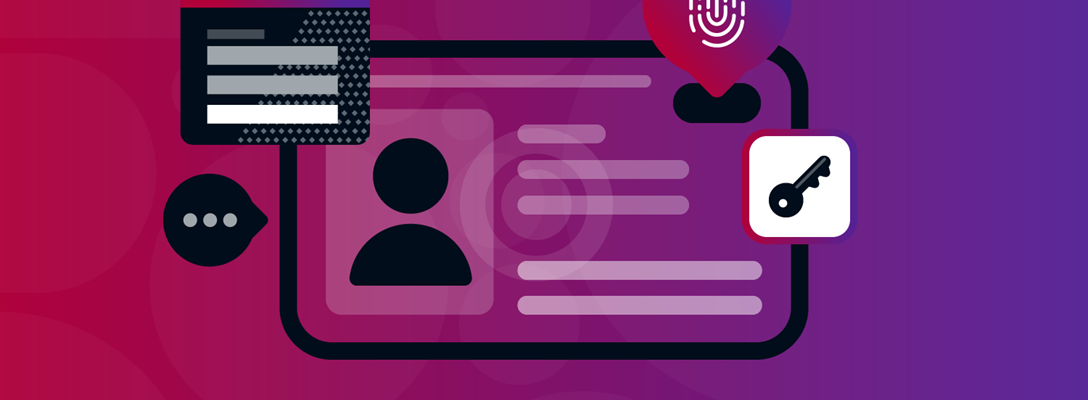
Reusable identity is the foundation our digital economy needs
Think about how you prove you are who you say you are when you interact with a business for the first time in a physical setting. You hand over a selection of identity documents, which they can easily verify against your physical appearance and by asking you some follow-up questions. It’s a simple process, but one which provides both sides with all the trust that’s needed to perform the transaction at hand.
Once that trust is earnt, it can be drawn upon in subsequent exchanges - growing and strengthening with every successful interaction. Even better, it can be transferred and used again and again- either through word of mouth or by using identity documents we’ve already earned as proof for future transactions.
This doesn’t happen online. Rather than allowing people to carry trust with them across different websites and platforms, every new interaction requires a new confirmation of identity - meaning trust is always reset to zero. To give you an example - imagine that every time you visited a new country you had to fill out a brand new passport application, rather than being able to show your existing passport laden with stamps and carrying the weight of the government’s approval. That’s what happens whenever customers engage with a new business online.
And while this may sound like a minor inconvenience as a one-off, the fact this happens with every new transaction means identity has become a major barrier to growth for businesses and acts a check on the whole digital economy. Where identity should act as a foundational benefit that businesses can lean upon and trust, it instead becomes a burden, adding friction to every aspect of the online experience.
This unnecessary friction causes real pain for businesses. Not only do they have to handle the fallout when potential new customers get frustrated and drop out of the onboarding process, businesses are also required to regularly reconfirm the details of existing customers. The result? Unnecessary amounts of time and money are spent managing risk and monitoring regulations, when those resources would be better deployed helping the business grow.
There is a better way. One which allows businesses to benefit from the work carried out by responsible organisations before them by using verified, provable and transferable identifiers to reduce the risk of fraud, speed up onboarding and reduce drop-out rates.
This approach replicates the key benefits of trust in the physical world, while also adding the extra layer of security that modern verification solutions can provide. This combination would provide our digital economy with the strong foundations it needs for the decades ahead - foundations that offer businesses and consumers alike reliability, ease of use and trust into a single package.
From typos to trust - how reusable identity can help retailers
This is particularly relevant for the retail sector where the lack of a single reusable identity also leaves consumers prone to user error. One typo when entering a house number or postcode and your order can end up somewhere completely unexpected, leaving business and consumers equally frustrated.
A reusable digital identity can help solve this by removing the need for the customer to constantly re-enter their address and also ensuring that previous successful transactions don’t go to waste. This is particularly valuable to businesses when it’s paired with a specialist address verification solution like GBG’s Loqate.
Loqate enables businesses to clean and verify the address data of their customers before a package ever leaves the depot, improving consumer satisfaction and reducing waste for retailers.
But right now, every time a customer buys from a new business, that verification has to take place from scratch - adding an unnecessary layer of friction. And while this might sound unlikely - the truth is 62% of consumers have experienced this annoyance and to make matters worse - 80% of retailers say the consumer is usually to blame for these failings.
With a reusable identity, their address data would just need to be verified using a platform like Loqate the first time they shared it - every other usage could then rely on the trust formed during that first successful interaction.
This is only one example of why reusable identity can help streamline our digital economy. By allowing trust to grow and be shared, we can ensure the only friction in our online economy exists where it’s absolutely necessary - combatting and preventing fraud. In every other area, we can reduce friction, confident that every individual involved in a process is not only trustworthy, but we have the correct data for them.
Ready to dive deeper? Our podcast on Building Borderless Businesses with Spencer McLain, VP & General Manager, EMEA at Ekata, and Matthew Furneaux, GBG’s Director of Location Intelligence has the insights you need.
Sign up for more expert insight
Hear from us when we launch new research, guides and reports.